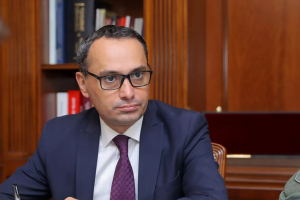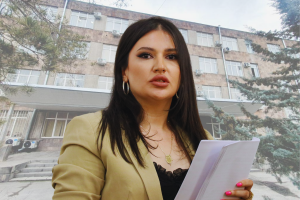On 10 July, the Anti-Corruption Civil Court held a hearing, in the case on the confiscation of assets and funds of allegedly illicit origin of the former Mayor of Yerevan, currently a member of the National Assembly Taron Margaryan and his family members. Judge Karapet Badalyan presided over the court hearing.
According to Iravaban.net, at this session, the parties addressed the questions regarding the claim and the calculations presented in it.
According to the representative of the responding party, as a result of changing the basis and subject of the claim in the calculations of the settlement, the settlement was changed as well, both the original claim and the new amendment were studied in full, but initially no settlement was submitted.
The representative asked the Prosecutor Ruzanna Khudaverdyan, what was the reason that the calculation itself was missing in the claim?
The Prosecutor said that the calculation should mean the annual analyzes in the claim, which were made on the basis of the data attached to the claim.
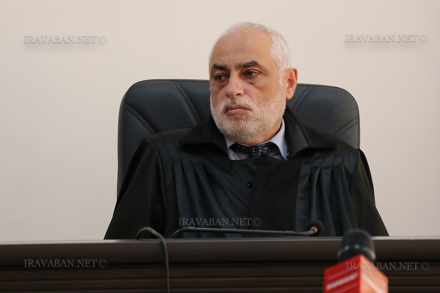 The lawyer mentioned that she had seen the existing tables, but with the lawsuits for confiscation of money, if interest is included in the calculation of the mentioned amount, the Code of Civil Procedure strictly provides that it should be clearly stated how that amount was generated and how the calculation was made.
The lawyer mentioned that she had seen the existing tables, but with the lawsuits for confiscation of money, if interest is included in the calculation of the mentioned amount, the Code of Civil Procedure strictly provides that it should be clearly stated how that amount was generated and how the calculation was made.
The Prosecutor noted that it cannot be more detailed than the calculation made.
“In the presented lawsuit, you asked to confiscate 100 million 417 thousand 533 drams, but you did not present any calculation of how this amount was finally generated. For example, you asked for the final confiscation of 755 million 154 thousand 928 drams as the remainder of the illicit income, but you did not present any calculation in that regard either,” the lawyer said.
Answering the lawyer’s question, the Prosecutor said: “The sums included in the subject of the lawsuit appear at the end of the analysis of each year, for example, 755 million is already visible in the table in the last calculation of 2022, that is, it is the accumulated result of the years, nothing new has happened for me to submit an additional calculation.”
The lawyer also tried to clarify how the studies of the calculations were done, the Prosecutor said that there were internal procedural rules, any property belonging to a person was studied, as a result of which it was determined which properties were illicit and which were justified by legal income.
The lawyer asked, if the given income was not subject to taxation, how was the study done, Khudaverdyan said that they were mostly done by sending written requests to state bodies or the person could present and inform about certain data.
Regarding the sisters of Taron Margaryan, the Prosecutor stated that no calculation was made regarding them as such; the 2 cars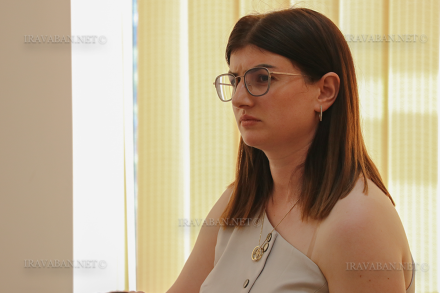 mentioned were required from them, because they were considered as properties belonging to Taron Margaryan.
mentioned were required from them, because they were considered as properties belonging to Taron Margaryan.
The lawyer asked if they could be considered as bona fide acquirers of the property, the Prosecutor reply was “in her opinion no”, but if they were bona fide acquirers, only the market values of the properties would be subject to confiscation from Margaryan, no other claim regarding Taron Margaryan’s sisters was included.
It was also noted that in 2001, 2002, 2003, 2004, the minimum consumer basket was calculated because there were no bank data and only the data received from the Statistical Committee was calculated.
According to the Prosecutor, the new period under study refers to properties subject to confiscation, but the study, that is, the analysis of legal income or property acquisitions, was carried out for the entire period (since 1991).
The lawyer said: “Do I understand correctly, by your decision, you went beyond that period and conducted a study outside of that decision?”
The Prosecutor answered: “I do not believe that we have exceeded the deadline, because, I repeat again, the period under study refers to the properties subject to confiscation, and the study is carried out for the entire period.
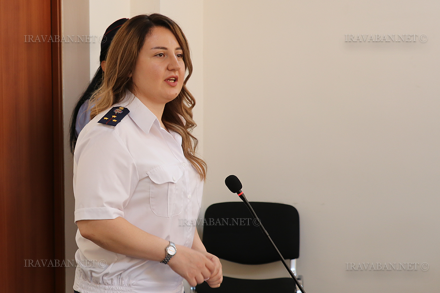 Moreover, even regarding this civil case there are judicial acts issued by the Court of Appeal itself.”
Moreover, even regarding this civil case there are judicial acts issued by the Court of Appeal itself.”
The representative of the defendant emphasized that it was about a fairly long period of time, and it would be very difficult to prove the property acquired in the years and how it was acquired. It is also important to emphasize that the circulation, trade relations, and the RA Legislation of those years were completely different.
After the break, questions about Taron Margaryan’s sister Ani Margaryan were asked. The lawyer first clarified why Ani Margaryan was not involved in the investigation proceedings, the Prosecutor said that at that stage the position was such that the cars were not confiscated, that was the reason that they were not involved.
When asked whether Ani Margaryan was a bona fide purchaser of the property or not, the Prosecutor said that, as in the previous case, she stated that they were not a bona fide purchaser, because they could reasonably have known that the car was purchased with Taron Margaryan’s funds, and they could also know that Taron Margaryan did not have funds during that period, and it was obtained by illicit means.
– Don’t you think or rule out the fact that the car could have been purchased not with Taron Margaryan’s funds, but with the help, mediation or assistance of another person?
– I definitely do not rule out that circumstance, but since I do not have any information about it, I cannot say anything about it at the moment.
– And have you tried to get data?
– We are trying to get the data from the state bodies, as well as by carrying out operative-investigative measures; there is no other additional data on those specific parts.
Lawyer Benik Galstyan also asked questions to the plaintiff, clarifying the methods used to assess the availability of legal funds at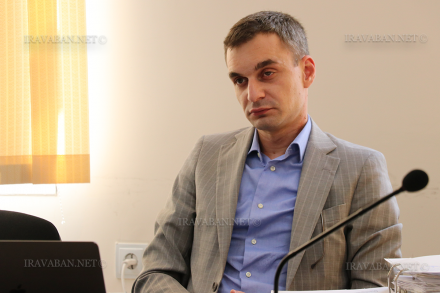 the time of incurring expenses.
the time of incurring expenses.
Prosecutor Ruzanna Khudaverdyan mentioned that in order to answer the questions, a whole year’s bank statement should be taken, these questions were not asked in advance, and if possible, the questions should be sent in writing so that the answers to them could be given at the next session.
The lawyer said that all the questions were financial, but, for example, there were questions that did not contain digital problems, a financial specialist could answer them, however, other questions would be sent electronically.
At the next court session, questions and answers regarding calculations, financial data, etc. will continue.
The next court hearing in this case will be held on 16 July.
Details in videos.
Mariam Shahnazaryan

